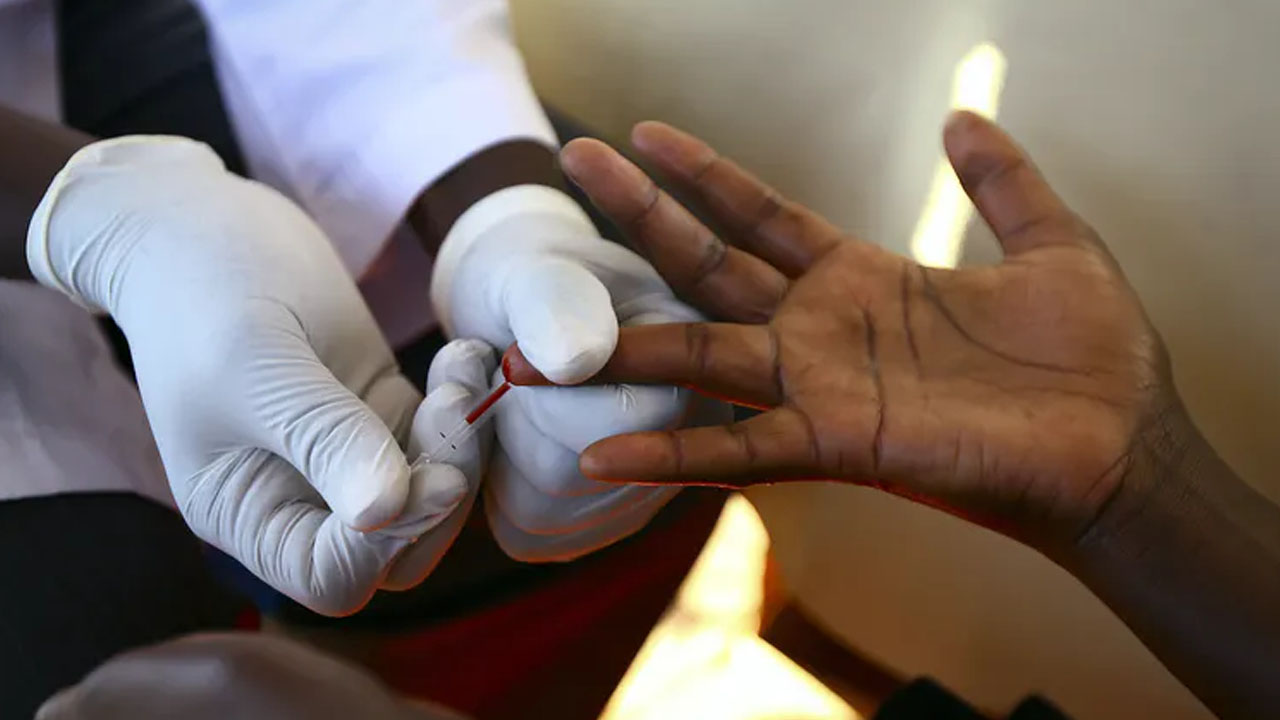
•Africa reported 549,000 deaths, 2.5 million cases of disease in 2020
•Infection with ‘wasting disease’ protects mice from developing COVID-19
•Discovery may explain why TB, COVID-19 double infections are rare in humans
Recent estimates by the World Health Organisation (WHO) showed tuberculosis (TB) killed 156,000 Nigerians and afflicted 452,000 in 2020.
An assessment by WHO, released yesterday, found inadequate investment and funding for TB control in Africa is jeopardising the efforts to meet the global target of ending the disease by 2030, while the COVID-19 pandemic threatens to roll back progress made so far in the continent.
Reacting to questions from The Guardian after a teleconference ahead of World TB Day, Executive Director of the Stop TB Partnership, Dr. Lucica Ditiu, said: “Over 450 thousand people develop TB each year in Nigeria. In 2020, WHO estimates that 452,000 people in Nigeria developed TB.
“The number of people dying in 2020 due to TB in Nigeria was 156,000. This includes 28,000 among people living with Human Immuno-deficiency Virus (HIV) who died due to TB.”
Ditiu said the estimates for number of people developing TB in Nigeria is increasing over the last several years. This, Ditiu said is because in the past, a small proportion of TB in Nigeria was diagnosed and treated. “We know that TB is an airborne disease and it can spread from untreated people to others. The proportion of people getting diagnosed and treated has increased in recent years, including last year (2021) and if this trend continues, then the yearly TB incidence in Nigeria will start decreasing soon,” Ditiu said.
The Stop TB Partnership boss further explained: “On people dying due to TB in Nigeria each year, the numbers have been high for the last five years, over 150,000. While people dying due to TB among people living with HIV (PLHIV) have decreased mainly due to scale up of antiretroviral treatment, the TB deaths amongst HIV-negative individuals have increased due to a large proportion remaining undetected. We know that undetected and untreated TB has high mortality.”
Also, the WHO African Region, in a virtual press conference yesterday said every year the African region requires at least US$ 1.3 billion for TB prevention and treatment. However, countries contribute 22 per cent of the needed budget, while external funding accounts for 34 per cent. The rest of the budget remains unfunded, seriously undermining the efforts to eliminate the disease. This year, World TB Day is being marked under the theme “Invest to end TB. Save Lives.”
Underfunding for TB programmes has a significant impact on disease detection, for example. Out of an estimated 2.5 million TB cases in 2020 in Africa, only 1.4 million were detected and put on treatment. On average, 56 per cent of cases were detected and enrolled on treatment between 2015 and 2020.
According to the WHO, the COVID-19 pandemic has also slowed progress against TB. Globally, deaths from TB rose for the first time in a decade. Africa reported 549,000 deaths in 2020, an increase of around 2000 over 2019. The number of newly detected TB cases also fell in high burden African countries due to disruptions by the COVID-19 pandemic on health services.
Gabon reported the steepest decline, with the number of newly detected cases falling by 80 per cent in 2020 from the year before. Botswana reported a 20 per cent decline and Lesotho 35 per cent.
Additionally, 28 per cent fewer patients with drug-resistant TB were detected in Africa in 2020 compared with the previous year. In South Africa, which detects the largest number of drug-resistant TB cases in the continent, 48 per cent fewer people with the drug-resistant strain were detected in 2020 compared with 2019.
WHO Regional Director for Africa, Dr. Matshidiso Moeti, said: “Tuberculosis is preventable and treatable, and millions of lives have been saved. We must end the chronic underinvestment that keeps the tuberculosis burden high, leaves a huge number of cases undetected and undermines prevention and treatment. Africa has so far made good progress against tuberculosis and we cannot afford to lose focus on what is needed to ease the burden and save lives.”
The African region is home to 17 of the 30 high-burden TB countries globally. The estimated 2.5 million cases in the region in 2020 accounted for a quarter of the global burden, with more than half a million African lives sadly lost to this curable and preventable disease.
However, African countries have made progress against TB. South Africa, for example, has steadily increased domestic funding to fight tuberculosis, allocating 81 per cent of the financial resources, while Zambia has increased its domestic funding seven-fold since 2015.
Under the WHO End TB Strategy, countries should aim to reduce TB cases by 80 per cent and cut deaths by 90 per cent by 2030 compared with 2015. The strategy also sets key milestones that countries should cross by 2020 and 2025 if they are to end the disease.
The 2025 milestone seeks a 50 per cent reduction in cases and a 75 per cent decline in deaths. TB cases should drop by 10 per cent every year to meet the 2025 target, yet the current rate of decline in cases stands at two per cent. From 2025 to 2030 countries should reduce cases by 17 per cent every year.
The End TB Strategy also includes a key target that seeks to reduce the catastrophic cost of tuberculosis treatment can have on families. However, a WHO survey on the cost of tuberculosis treatment in 10 Africa countries showed that 49 per cent of TB-affected households experienced catastrophic costs. No country in Africa has yet demonstrated that it has met the target that no TB-affected households face catastrophic costs.
“The road to ending tuberculosis is likely to get long and hard as key milestones risk being missed. Countries must scale up and speed up the response and stay committed to alleviating the suffering and death caused to millions of people due to tuberculosis,” Moeti said.
Meanwhile, according to a new study by Richard Robinson at The Ohio State University, United States (U.S.) and colleagues publishing March 24th in the open-access journal PLOS Pathogens, in mice, the immune response mounted against tuberculosis prevents them from developing COVID-19.
Currently, the bacterium that causes tuberculosis, Mycobacterium tuberculosis, and the virus that causes COVID-19, SARS-CoV-2, are the leading causes of death from infectious disease worldwide. Tuberculosis is widespread, and scientists have questioned whether the immune response triggered by this serious respiratory infection might protect people from developing COVID-19. To find out more, researchers worked with two different strains of mice and infected them with M. tuberculosis. Then they exposed the mice to the COVID-19 virus and monitored them for signs of infection. They discovered that mice with tuberculosis showed no signs of COVID-19, likely because the pre-existing immune response to tuberculosis prevented the virus from proliferating in the lungs.
Altogether, the findings demonstrate that tuberculosis infection makes the lungs inhospitable to the COVID-19 virus in mice. If the same is true for humans, then this discovery may be one reason there have been few reports of individuals with both tuberculosis and COVID-19 in the absence of other complications. The findings may also explain why countries tend to have high rates of infection of COVID-19 or tuberculosis, but not both. The researchers propose that future research should focus on the interaction between COVID-19 and tuberculosis infections in humans.
TB and COVID are pandemics that affect every part of the world,” Robinson adds. “Our study reflects the work of a diverse and talented group of OSU scientists to better understand how these two diseases influence one another, a surprising observation being that mice with TB are resistant to COVID in a lab setting.”






